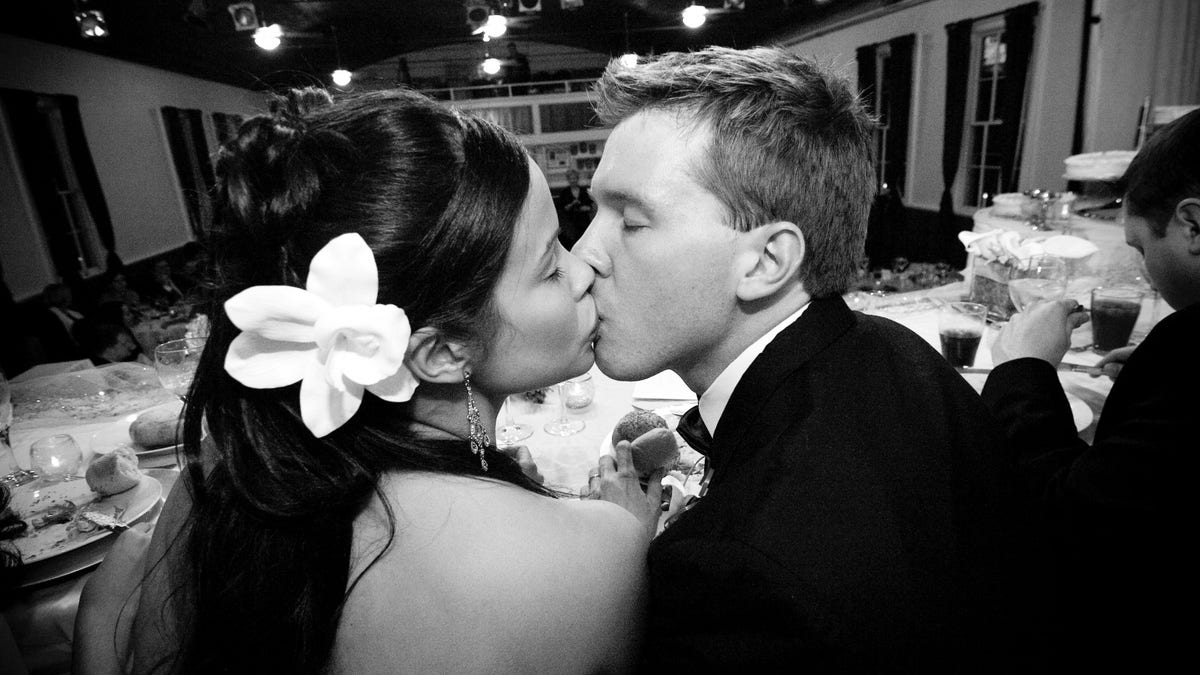
Joshua Rogers and his wife Raquel. (Courtesy of the author)
One night during my first year of marriage, my wife and I got into a big argument that I haven't forgotten. It's not the argument that was memorable, though – it's the way it ended.
We were bickering about something and Raquel refused to listen to the points I was making from the kitchen. She was firing back from the living room and I finally got fed up.
"Drop it, Raquel,” I said. “Just drop it."
She kept on going, so I raised the volume and said it again: "Drop it, Raquel!"
It didn't work, so in a moment of profound immaturity, I grabbed a frying pan by the handle and smashed it onto the stovetop as hard as I could.
"I said drop it!" I yelled, feeling a rush of adrenaline at my forceful ending of the conversation.
Then Raquel outdid me.
"Way to go!" she said in a mocking voice like she was cheering me on. "Look at you hitting the frying pan on the stove! Good one!"
I fell silent, burning with rage, but there was no point in saying anything else. She had embarrassed me into silence, and all I could do was stand there feeling angry at her and ashamed of myself.
This wasn't what I envisioned when I made my marriage vows. I never imagined Raquel would ever mock me or that I'd be that guy who's willing to break an appliance in order to make a point. But here we were, those people – that couple.
As the years have gone by, things have improved immensely. The romance has stayed strong, we make a good team as parents, and we have a deep and genuine affection for each other.
Yet, we've never gotten past our ability to bring out the worst in each other sometimes. I realize that's normal, but it's also the kind of thing that can harden couples over the years.
In our case though, I think there's a big reason why we're still holding steady: Raquel is one of the most chronically forgiving people I know.
While she's not afraid to call me out for being my worst self, once we've resolved it, she just moves on. She wants to be friends again. That hasn't always come naturally to me, the lawyer in the family.
I like to have a full trial where I put on my star witness (me), present my case before the judge and jury (also me), and get a guilty verdict against the defendant (my wife).
But when you've got a wife who's not even interested in making a case because she's already over it, it takes the fun out of being right. You begin to realize that forgiveness is an easier and less exhausting path in the long run.
When couples are willing to forgive each other, they can move forward and look each other in the eyes without anger or shame. They can soften up after the argument is over.
Basically, if a couple can get forgiveness right, they can get love right – even if the love is interrupted by times of pride and hurt feelings.
The problem is that it sometimes feels unfair to forgive – especially when one spouse feels like he or she does more of the forgiving than the other. While that may be true, it brings me back to the advice of a woman who has now been married 73 years.
When I asked the woman to share her best piece of advice for married couples, she said this: “You’ve got to remember that one of you will always be loving more.” The question is whether we're willing to be the one who loves more when it comes to forgiveness.
If we are, it will take every ounce of humility we've got, but in return, we get to participate in the great impersonation of Jesus Christ. He let go of his rightful sense of entitlement and laid down his life for ours. He saw forgiveness as a chance at greatness – not a chore.
Jesus did what we must do if our marriages are going to thrive despite offenses: He pardoned someone who didn't deserve it, knowing that in doing so, there was a chance for us to experience real love.




















